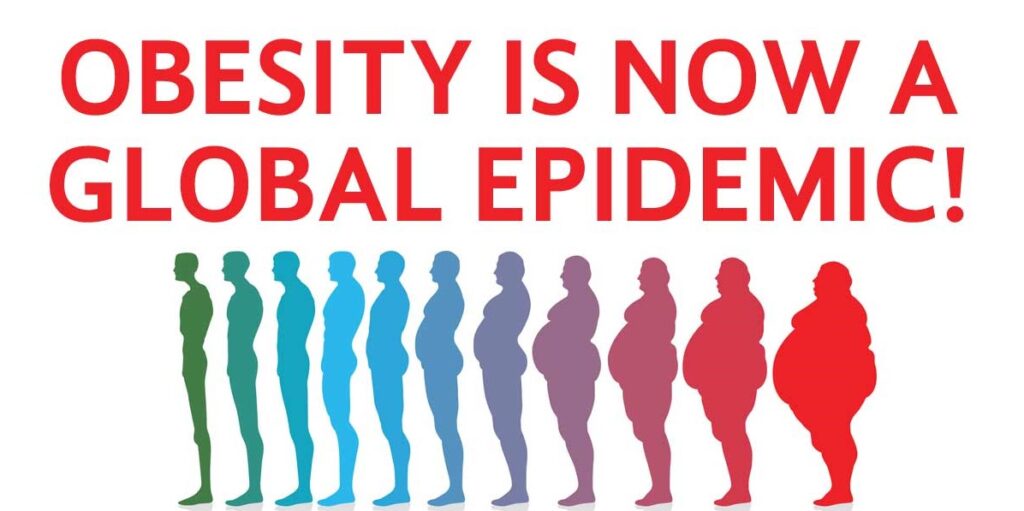The Global Obesity Epidemic has reached alarming levels, affecting millions of individuals worldwide and posing significant challenges to public health systems. As we approach 2024, it is crucial to explore innovative public health initiatives designed to tackle this pressing issue. This article delves into the multifaceted nature of obesity, examining its causes, consequences, and the urgent need for effective strategies to promote healthier lifestyles. By understanding the complexities of this epidemic, we can better appreciate the importance of collective action in addressing it.
In the following sections, we will highlight key public health initiatives set to launch in 2024, focusing on community engagement, policy changes, and educational programs aimed at reducing obesity rates. Readers will learn about successful case studies from various countries, showcasing how targeted interventions can lead to significant improvements in public health outcomes. Additionally, we will discuss the role of technology and social media in promoting healthy habits and raising awareness about obesity-related issues.
As we navigate through the challenges posed by the Global Obesity Epidemic, it is essential to remain informed and proactive. Join us on this journey to uncover the latest developments in public health initiatives for 2024, and discover how you can contribute to a healthier future for all. Together, we can make a difference in combating obesity and fostering a culture of wellness.
Obesity has become a global health crisis, affecting millions of individuals and leading to various chronic diseases. As we approach 2024, public health initiatives are being developed to combat this epidemic. This article explores key subtopics that are crucial in addressing the obesity crisis.
Understanding the Causes of Obesity
The rise in obesity rates can be attributed to a combination of genetic, environmental, and behavioral factors. Sedentary lifestyles, poor dietary choices, and the prevalence of processed foods contribute significantly to weight gain. Additionally, socioeconomic status plays a crucial role, as individuals in lower-income brackets often have limited access to healthy food options and recreational facilities.
Public health initiatives must focus on educating communities about the importance of nutrition and physical activity. By understanding the multifaceted causes of obesity, stakeholders can develop targeted interventions that address these underlying issues effectively.
The Role of Schools in Promoting Healthy Habits
Schools are pivotal in shaping children’s eating and exercise habits. Implementing comprehensive health education programs can instill lifelong healthy behaviors in students. Initiatives such as incorporating physical education into the daily curriculum and providing nutritious meals in cafeterias are essential steps toward combating obesity.
Moreover, schools can partner with local farms and organizations to create farm-to-school programs, ensuring that students have access to fresh fruits and vegetables. By fostering a culture of health within educational institutions, we can significantly reduce obesity rates among children and adolescents.
Community-Based Interventions
Community engagement is vital in addressing obesity. Local governments and organizations can implement programs that promote physical activity, such as community sports leagues, walking groups, and fitness challenges. These initiatives not only encourage exercise but also foster social connections among participants.
Additionally, community gardens can be established to provide residents with access to fresh produce, promoting healthier eating habits. By creating supportive environments, communities can empower individuals to make healthier lifestyle choices.
The Impact of Technology on Obesity
In today’s digital age, technology plays a dual role in the obesity epidemic. While it can contribute to sedentary behavior through excessive screen time, it also offers tools for promoting health. Mobile applications and wearable devices can help individuals track their physical activity and dietary intake, encouraging healthier choices.
Public health initiatives can leverage technology by developing interactive platforms that provide resources, support, and motivation for individuals seeking to lose weight. By harnessing the power of technology, we can create innovative solutions to combat obesity.
Policy Changes and Regulations
Government policies play a crucial role in shaping public health outcomes. Implementing regulations on food marketing, particularly to children, can help reduce the consumption of unhealthy foods. Additionally, policies that promote access to healthy foods in underserved areas, such as food deserts, are essential for addressing obesity.
Tax incentives for businesses that provide healthy food options and penalties for those that do not can also drive change. By enacting comprehensive policies, governments can create environments that support healthy living.
The Importance of Mental Health in Obesity Management
Mental health is often overlooked in discussions about obesity. Emotional eating, stress, and mental health disorders can contribute to weight gain and make it challenging for individuals to adopt healthier habits. Public health initiatives must address the psychological aspects of obesity by providing resources for mental health support.
Integrating mental health services into obesity prevention programs can help individuals develop healthier coping mechanisms and improve their overall well-being. By recognizing the connection between mental health and obesity, we can create more effective interventions.
The Role of Healthcare Providers
Healthcare providers play a critical role in obesity prevention and management. They can offer guidance on nutrition, physical activity, and behavioral changes. Training healthcare professionals to address obesity sensitively and effectively is essential for improving patient outcomes.
Additionally, healthcare systems can implement routine screenings for obesity and related health conditions, ensuring early intervention. By prioritizing obesity in healthcare settings, we can enhance the support available to individuals struggling with weight management.
Future Directions in Obesity Research
As we look toward the future, ongoing research is vital in understanding and addressing obesity. Studies focusing on the effectiveness of various interventions, the impact of genetics, and the role of the microbiome in weight




